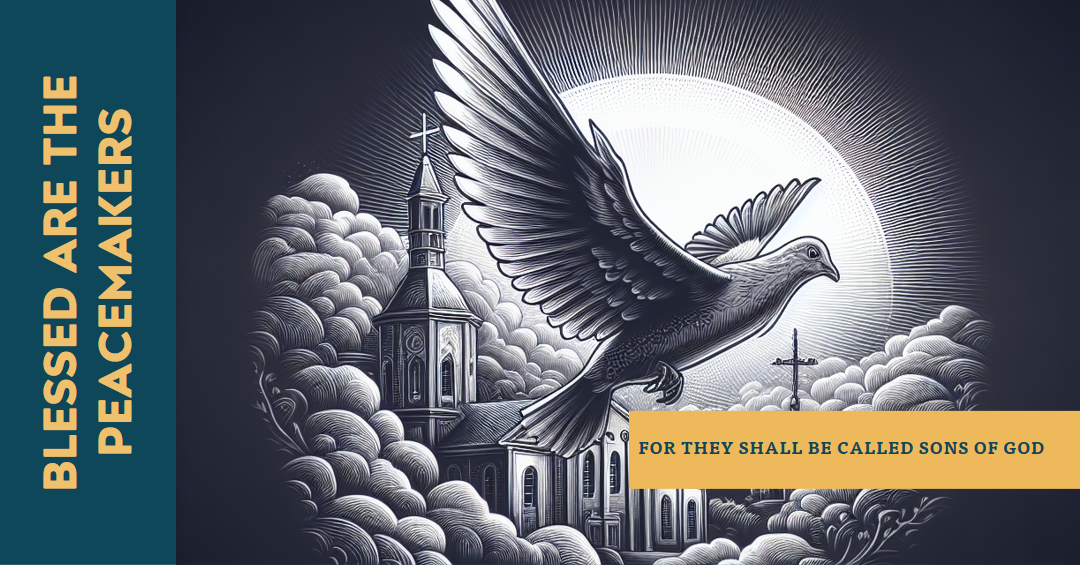The sermon series will delve into the concept of Christian Pacifism, examining its biblical foundation and questioning whether churches should ever endorse war. This week we will be looking at why God appoints/allows Civil Governments and not the church over protection of the people.
”Be subject for the Lord’s sake to every human institution, whether it be to the emperor as supreme, or to governors as sent by him to punish those who do evil and to praise those who do good.“ 1 Peter 2:13-17
Jane Turner
7/1/2024 10:47:46 am
Why is it that Christians can be seen as doormats when we disagree with and act pacifistly towards war?
David
8/1/2024 03:24:43 am
According to Baptist understanding, the perception that Christians who adopt pacifist stances are seen as doormats may arise from a misinterpretation of some biblical understandings. Baptists, like many Christians, emphasize love, forgiveness, and non-violence but not necessarily passivity in some cases. It’s essential to understand that Baptists, while diverse in views, often promote active engagement in promoting peace and justice rather than passive acceptance of mistreatment, especially in the area of self-defence of others (not self). Eg of this, is when we are called to love our enemy, but we also called to love our neighbour, therefore, to stand and do nothing when our neighbour is being hurt, is not to love.
Cultural influences, historical contexts, and a diverse range of beliefs within Christianity can contribute to varying perceptions.
I hope this helps
Helen Fernandes
10/1/2024 02:58:55 pm
Firstly – thank you for the deep thought and preparation you have put into this series Pastor Dave – not an easy topic to think of and preach on!
Maybe this is more of a comment than a question, but when we pray the Lord’s prayer – for God’s will to be done on earth as it is in Heaven, are we also actively praying and participating in that now – we are trying to love and live in a way that reflects and expands God’s Kingdom here and now – even though it’s so imperfect, in our hope for the fulfilment of the second coming?
David Champness
10/1/2024 04:44:22 pm
Thank you for sharing! Your insight aligns beautifully with the essence of our current sermon series on Christian non-violence and pacifism. There’s so much depth to it; I wish we could delve even further if we just had more time. To address your comment/question more directly:
Indeed, I believe when we pray the Lord’s Prayer and ask for God’s will to be done on earth as it is in Heaven, we are not merely praying for Gods intervention. We are taking the first steps in actively participating in the realization of God’s Kingdom here and now, and asking him to use us for His will.
Living in a way that reflects and expands God’s Kingdom involves embodying the principles of God’s love, mercy, and peace in our daily lives. The imperfections we encounter serve as reminders of our human limitations and our need for the Holy Spirit’s help. Through Holy Spirits guidance and our commitment to Christian non-violence and pacifism, we contribute to the faith, hope, and love that is found in Jesus and the anticipation of His second coming. I am in no way saying that it is our job to make it happen (the second coming), this can be a false teaching found in some modern theology. What i am saying is that the Father does have a will and a plan, and that plan includes using us to make His will happen, therefore what we prayer and actively do, does matter.
As Jesus taught us in the Lord’s Prayer, we are called to seek and bring about God’s will on earth. In doing so, we become instruments of His peace and love. Reflecting on the words of Jesus in Matthew 6:10, “Your kingdom come, your will be done, on earth as it is in heaven,” reminds us of the Father’s plan and His desire to actively use us as instruments in ushering in God’s Kingdom amidst our imperfect world.
Speaking of the Lord’s Prayer, I acknowledge that it can be seen as radical by some, but Walter Wink in his book “The Powers That Be,” discusses the line, “Thy kingdom come, thy will be done, on earth as it is in heaven,” emphasizing the revolutionary nature of Jesus’ prayer for his disciples. Wink interprets the prayer as a call for and to become a nonviolent spiritual resistance against the domination systems on earth, including political, philosophical, and ideological systems. This spiritual resistance, I believe can also play a plays a role in preventing the roots of conflict that lead to war.
The challenge lies in our active participation as Christians. Instead of partaking in the soldiering of war, We could be more engaging in the ministry of reconciliation and make a more significant contribution to the Lords prayer. Radical I know (Tongue in cheek). The line in the Lord’s Prayer, “forgive us our debts as we forgive our debtors,” is particularly challenging and I believe holds to the key theme and ministry of reconciliation and the practice of nonviolence. Forgiveness, is a powerful instrument and teaching that the Lord has given us, which can disrupt the cycles of violence and retaliation.
Your thoughts and ideas and your life, encourage me to keep growing in the Lord, understanding what it means for Jesus to be Lord over my life. Keep growing in His love and live in a way that mirrors the values of God’s Kingdom, knowing that your life contributes to the realization of His divine will on earth. As we as a church continue to explore the themes of non-violence and pacifism in this sermon series, may we be inspired by the teachings of Jesus and find strength in pursuing a path of peace.
PS. Two closing thoughts:
The title “Lords prayer” can be deceiving; it could be better described as the “Disciples’ prayer.” Jesus had many prayers, but this prayer was the specific instruction He provided for guidance for us/His disciples to pray and live out.
Also consider the link between Jesus’ teachings in the Lord’s Prayer, “Your kingdom come, your will be done, on earth as it is in heaven,” and his teaching on the sermon on the mount including Matthew 5:9, “Blessed are the peacemakers, for they will be called children of God.”. There can be a powerful connection between those two ideas.



Leave A Comment